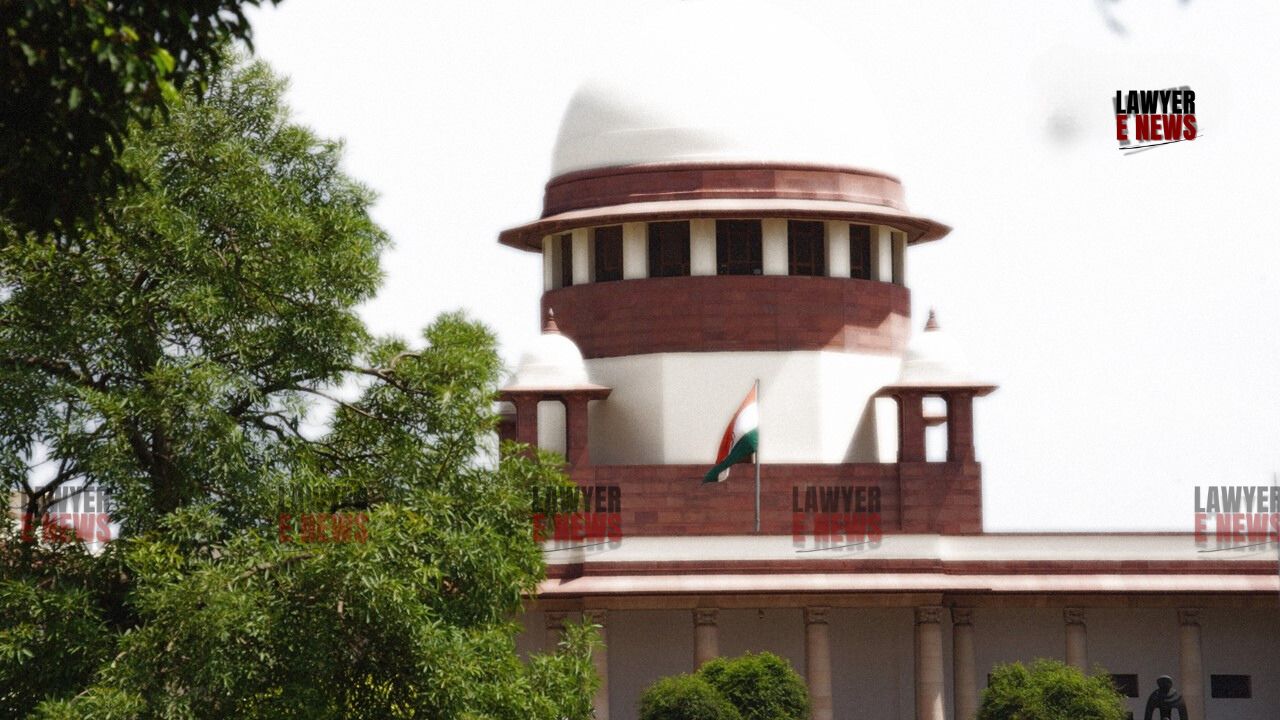-
by sayum
14 February 2026 2:22 PM



In a significant judgment, the Supreme Court of India has addressed the interplay between various sections of the Karnataka Stamp Act, 1957, particularly Sections 33, 34, 37, and 39. The Court clarified the jurisdiction of the judiciary versus the District Registrar when dealing with insufficiently stamped instruments, emphasizing that courts lack discretion in reducing penalties under Section 34. However, it affirmed that the District Registrar retains the discretion to impose penalties less than ten times the deficit stamp duty under Section 39.
The case stemmed from a dispute over an agreement of sale dated June 29, 1999, involving agricultural land in Mangalore. The appellant, Seetharama Shetty, sought a perpetual injunction against the respondent, Monappa Shetty, to prevent interference with the property, claiming possession under the sale agreement. The respondent, however, disputed the validity of the agreement, arguing it was insufficiently stamped and thus inadmissible as evidence unless proper stamp duty and penalties were paid.
The Supreme Court underscored that when an insufficiently stamped instrument is presented, the court must impound it under Section 33 and cannot waive or reduce penalties under Section 34. The Court highlighted the mandatory nature of Section 34, which requires a penalty of ten times the deficit stamp duty, leaving no discretion to the judiciary in this regard.
The judgment distinguished the roles under Sections 34 and 39 of the Act, stating that while courts must impose the statutory penalty, the District Registrar has broader discretion under Section 39. This discretion allows for the imposition of a penalty less than ten times the deficit, depending on the circumstances, such as potential fraud or deceit intended to evade revenue.
The Court found that in this case, the trial court prematurely imposed a tenfold penalty without first referring the instrument to the District Registrar, as the appellant had the right to have the penalty determined under Section 39. The Supreme Court corrected this by directing the trial court to send the agreement to the District Registrar for the determination of the correct stamp duty and penalty.
The judgment extensively explored the statutory framework and previous case law, emphasizing that the Karnataka Stamp Act is a fiscal statute with a primary objective of revenue collection. The Court ruled that the stringent penalty provisions serve to ensure compliance and prevent the evasion of stamp duty but should not be applied mechanically without considering the specific circumstances of each case.
Justice S.V.N. Bhatti remarked, “The discretion to impose penalties under the Karnataka Stamp Act is vested solely with the District Registrar under Section 39. Courts are bound by the statutory mandate of Section 34, which leaves no room for judicial discretion in reducing penalties.”
This ruling clarifies the respective roles of courts and the District Registrar in adjudicating disputes over insufficiently stamped documents under the Karnataka Stamp Act. The Supreme Court’s decision emphasizes the importance of following the correct procedural steps, ensuring that penalties are imposed fairly and within the legal framework. This judgment is expected to guide future cases, reinforcing the principles of fiscal law and the correct application of penalties.
Date of Decision: September 2, 2024
Seetharama Shetty v. Monappa Shetty
